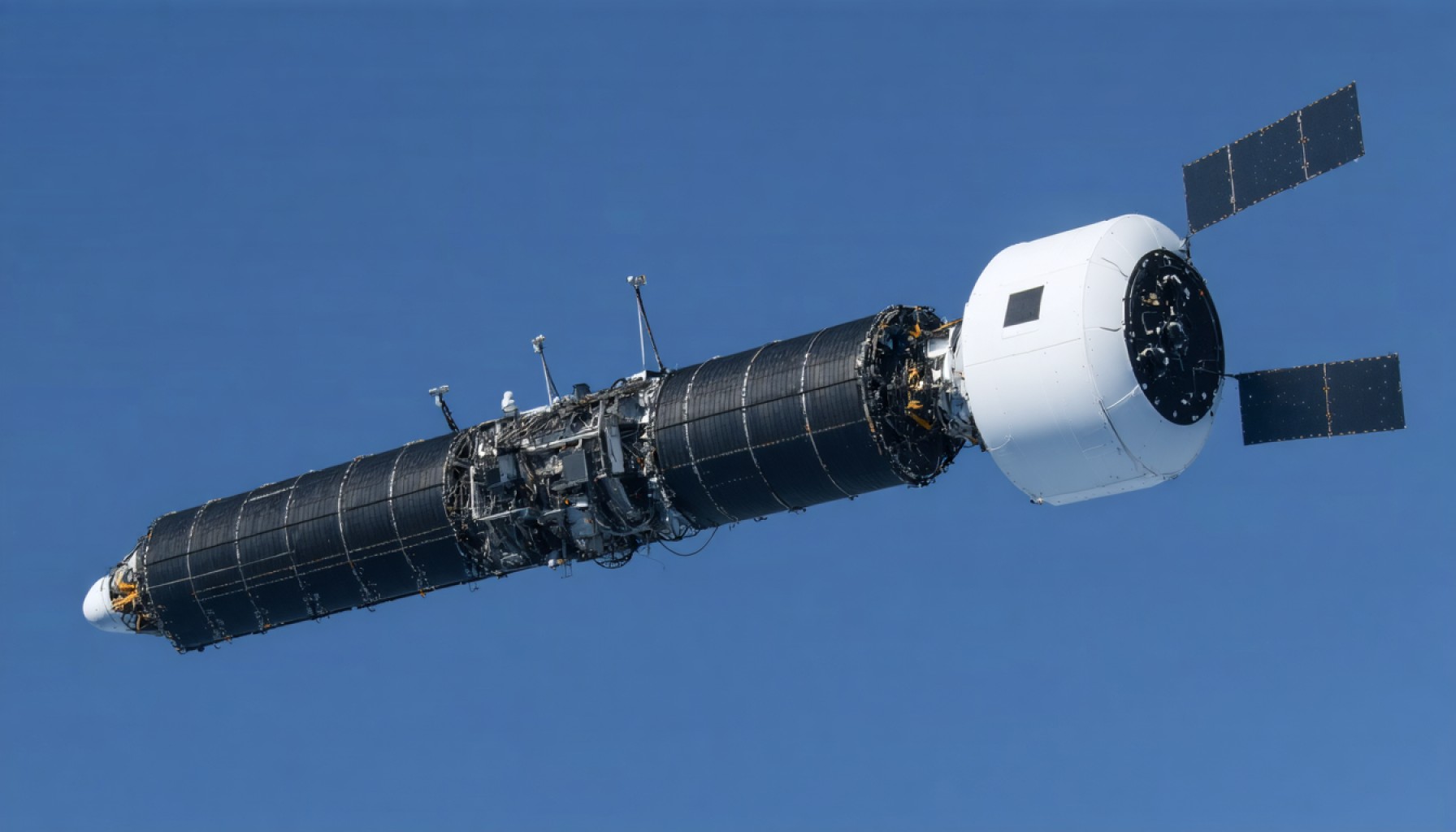- Rocket Lab successfully launched the iQPS mission “The Sea God Sees” using its Electron rocket from Mahia, New Zealand.
- The mission included deploying the QPS-SAR-10 satellite, featuring advanced synthetic aperture radar technology, into a 575-kilometer orbit to enhance imaging capabilities.
- The launch is part of a multi-launch contract, reinforcing iQPS’ and Rocket Lab’s positions as key players in satellite constellations and space exploration.
- The mission signifies Rocket Lab’s commitment to precision and reliability, marking their third successful collaboration with iQPS.
- Amid growing demand for low Earth orbit infrastructure, the mission advances Japan’s iQPS towards a global data-gathering satellite network.
- Rocket Lab and iQPS continue to strengthen their partnership, pushing the boundaries of innovation in space technology.
Beneath the sprawling skies of Mahia, New Zealand, Rocket Lab recently harnessed the power of its Electron rocket, propelling the iQPS mission “The Sea God Sees” into a tapestry of twinkling stars. This mission signifies more than just another successful flight; it’s a testament to the agility and precision that Rocket Lab continues to deliver in the competitive arena of space exploration.
At the heart of this operation was iQPS’ QPS-SAR-10 satellite, a sophisticated rotator bearing synthetic aperture radar technology. With keen focus, it joins a burgeoning constellation 575 kilometers above Earth, enhancing imaging capabilities from orbit. The Electron’s journey marks the continuation of an ambitious multi-launch contract designed to cement iQPS’ position as a major player in satellite constellations.
The setting was perfect for another Rosetta stone in Rocket Lab’s tale—a seamless liftoff at twilight on May 17, 2025. The New Zealand landscape framed a stage where technological prowess met human ambition, delivering satellite solutions with laser-like precision.
This operation underscores Rocket Lab’s commitment to its clients, portraying a company not just reaching for the stars but securing footholds amongst them. As the launchpad fires cooled, the Electron had reinforced its reputation with a flawless performance, making this the third mission for iQPS and hinting at the four more scheduled this year, promising more milestones on the horizon.
Set against a backdrop of increasing demand for low Earth orbit infrastructure, Rocket Lab’s achievements shine like beacons. The launch brought Japan’s iQPS closer to its vision of a satellite constellation capable of enveloping the globe with data-gathering prowess, magnifying our view of the planet and its changing nature.
As the charred silhouette of the launch pad faded into memory, Rocket Lab and iQPS solidified their space partnership, poised to transform imaginations into accomplishments. The Electron’s roar may have waned, but its echo calls loudly for the future where launches are as routine as flights, and the universe is not a distant frontier but a canvas waiting for the brushstrokes of innovation.
Rocket Lab’s Stellar Launch Advances Satellite Imaging: A Deep Dive into Emerging Space Technologies
New Zealand’s Role in Space Exploration
In recent years, New Zealand has emerged as a strategic location for space launches, driven by its geographic advantage for launching into diverse orbits. Rocket Lab’s frequent liftoffs from the Mahia Peninsula not only reinforce this but also highlight New Zealand’s commitment to becoming a key player in the global space industry. The country’s regulatory environment supports rapid innovation and collaboration, making it attractive for aerospace companies worldwide.
Exploring the Role of Synthetic Aperture Radar (SAR) Technology
The QPS-SAR-10 satellite, the centerpiece of this mission, utilizes advanced synthetic aperture radar technology. SAR allows for high-resolution imaging regardless of weather conditions or time of day, which is crucial for applications in environmental monitoring, agriculture, border surveillance, and disaster response. This flexibility enhances the potential for industries seeking reliable data for critical decision-making processes.
Multi-Launch Strategies: A Game Changer for Satellite Constellations
Rocket Lab’s strategy of employing multi-launch contracts exemplifies an efficient approach to deploying satellite constellations. This model minimizes costs and expedites deployment schedules, offering substantial competitive advantages. As more companies aim to build satellite networks for various applications, such tactics promise to accelerate the expansion of global connectivity and data acquisition capabilities.
Future-Proofing with Electron Rocket Innovations
The Electron rocket demonstrates Rocket Lab’s focus on enhancing space access reliability and frequency. Continued development of reusable rocket technologies could eventually reduce costs and increase launch rates, positioning Rocket Lab as a formidable contender in the commercial space industry.
Market Forecasts & Industry Trends
The satellite sector is projected to grow significantly, with an increasing number of companies launching nanosatellites and microsatellites. According to a report by Mordor Intelligence, the small satellite market is expected to reach $7,410 million by 2025. This burgeoning market underscores the demand for rapid, reliable, and cost-effective launch solutions like those provided by Rocket Lab.
Controversies & Limitations
While the promising potential of satellite technology is clear, there are challenges regarding space debris and regulatory constraints. Effective international collaboration is essential to address the sustainable use of space and mitigate risks associated with congested orbital environments.
Actionable Recommendations
1. Engage with Emerging Technology: Companies interested in satellite technology should monitor developments in SAR to leverage its enhanced imaging capabilities.
2. Consider Multi-Launch Packages: For businesses aiming to deploy satellite constellations, utilizing contracts like Rocket Lab’s multi-launch agreements can be cost-effective and time-efficient.
3. Prioritize Sustainability Measures: As space traffic increases, investing in technologies that reduce debris and promote sustainability will be paramount.
Conclusion
The successful mission from Rocket Lab and iQPS represents a leap forward in space technologies and satellite solutions. As space becomes more accessible and commercial satellite applications continue to grow, stakeholders in various industries should stay informed and consider strategic partnerships that leverage cutting-edge innovations.
For more information on how Rocket Lab is shaping the future of space, visit Rocket Lab’s official website.
